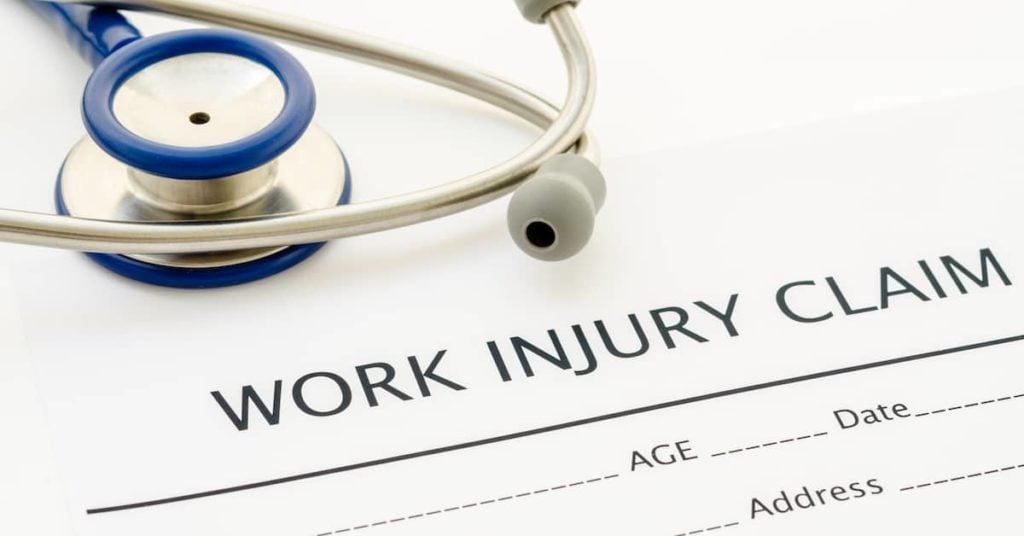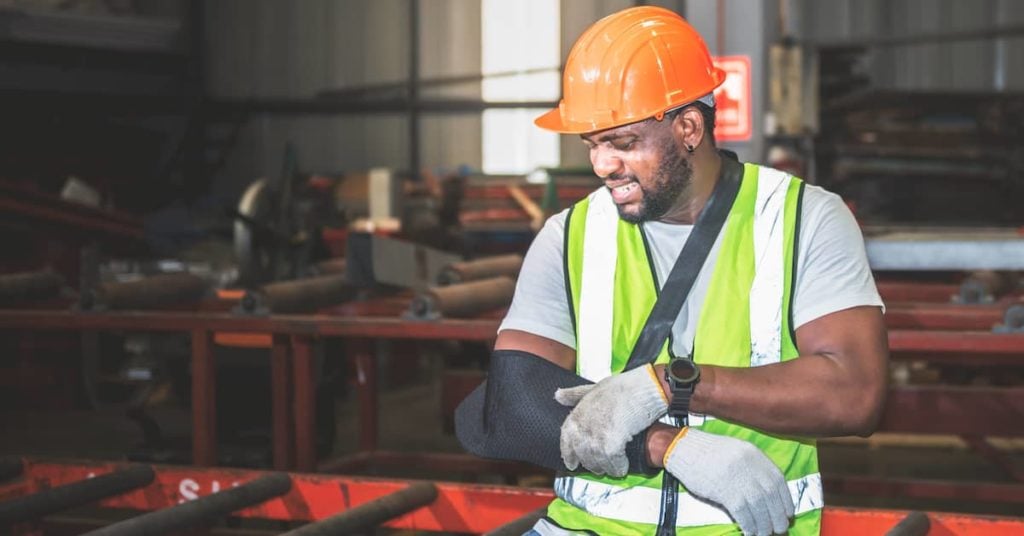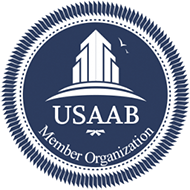Workers in Morgantown and across West Virginia face a wide range of job-related hazards every day. If you have been injured on the job, you should speak to a Morgantown work injury lawyer as soon as possible.
Anyone can get hurt at work. It is important to know your rights if you suffer an injury on the job or develop an occupational illness.
Colombo Law has a history of fighting for workers’ rights. Not only do we pursue maximum workers’ compensation on your behalf, but our attorneys will identify any additional claims you might have and exercise all options for recovering damages through a work injury lawsuit.
Please call (304) 599-4229 today to speak to a Morgantown work injury lawyer for free. Colombo Law serves workers throughout West Virginia.

Common Types of Workplace Accidents
Workplace accidents encompass a number of different events that can give rise to an injury or disease related to your employment. Some injuries occur suddenly while others develop slowly over time through repetition of work-related tasks.
Colombo Law is proud to represent clients in work injury claims involving:
- Slip and fall accidents
- Natural gas injuries
- Construction site accidents
- Fires and explosions
- Workers struck by falling objects
- Caught-in/caught-between accidents
- Work-related motor vehicle accidents
- Truck accidents
- Malfunctioning tools, machinery, and equipment
- Restaurant and kitchen mishaps
- Exposure to toxic chemicals and materials
- Asbestos exposure and mesothelioma
This is not an inclusive list. If you have been injured on the job in Morgantown or anywhere in West Virginia, Colombo Law wants to hear from you.
What Are the Most Common Work Injuries?
The type of injury you sustain at work depends on a number of factors. Your occupation, the location where you are working, and the cause of the accident can all affect the work injuries you suffer and their severity.
Some of the most common work injury claims we see at Colombo Law include:
- Overexertion injuries
- Repetitive stress injuries
- Lacerations and abrasions
- Injuries to the back, neck, and spinal cord
- Head and brain injuries
- Eye injuries
- Work-related hearing loss
- Burn injuries
- Electrocution injuries
- Amputation injuries and loss of limbs
Your first priority after a workplace injury is to see a doctor. If the injury is serious, you should go to the hospital or wait for an ambulance to transport you to the emergency room.
Work injuries need to be thoroughly documented to preserve your right to workers’ compensation benefits and safeguard any other claims you may have. Any delay in seeking medical care is not just bad for your health and well-being – it can be extremely detrimental to your legal rights as well.
Do I Need a Work Injury Attorney?
Generally, it is in your best interest to speak to a work injury lawyer as soon as possible after a workplace accident or if you have been diagnosed with a job-related illness or injury. An experienced attorney can review your case and identify your legal options.
It is especially important to have a work injury lawyer on your side if:
- You suffer an injury that causes you to miss more than 3 days of work. In West Virginia, workers qualify for disability payments through workers’ comp if a job-related injury or illness prevents them from working for more than 3 calendar days. A Morgantown work injury lawyer can ensure that you get the full benefits you deserve.
- It is determined that you have a permanent disability. Workers who sustain an injury or illness on the job that constitutes a permanent disability (as defined by Section 23-4-6 of the West Virginia Code) are entitled to additional workers’ compensation benefits. Once again, however, it is advantageous to have a work injury attorney who can ensure that the percentage of disability is rated correctly and see that you are paid the benefits you are due.
- A member of your family dies as a result of a work injury. The worst-case scenario in any workplace accident is the death of a worker. If your loved one died in a job-related accident or passed away from a work illness, a work injury lawyer can help you make a claim for workers’ compensation death benefits.
- Your workers’ compensation claim is denied. Workers’ comp claims may be denied for a number of reasons. It is important not to get discouraged if you receive a letter denying your claim. A Morgantown work injury lawyer can help you appeal the decision.
- Another party may be liable for the work injury. Ultimately, it might not be clear exactly what caused you to get hurt at work. Therefore, it is in your best interest to talk to a work injury attorney promptly to determine if you have legal recourse beyond workers’ compensation.
Read More: Is It Worth Getting a Workers’ Comp Attorney?

What Options Do I Have for Compensation After a Work Injury?
Broadly speaking, there are two options for recovering compensation after a workplace accident or an injury or illness related to your job:
Workers’ Compensation
Per the West Virginia Offices of the Insurance Commissioner, “All WV employers are statutorily required to maintain workers’ compensation insurance coverage.” Most workers will need to turn to their employer’s workers’ comp insurance if they have been hurt on the job or got sick as a result of their employment.
Workers’ compensation provides the following benefits:
- Coverage of all medical expenses related to your work injury or occupational illness
- Replacement of two-thirds of your lost wages (temporary total disability benefits)
- Vocational rehabilitation benefits and payment of 70% of the difference between your pre-injury wages and what you are able to earn after the fact (known as temporary partial rehabilitation disability benefits; see WV Code § 23-4-9(d))
- Permanent partial disability benefits for the impairment or loss of a body part (see WV Code § 23-4-6)
- Permanent total disability benefits, if the work injury or illness makes it impossible for you to return to work
Dependent family members (which may include the surviving spouse, a child or children, parents, grandparents, and/or siblings) are entitled to death benefits if a worker dies as a result of work injury. Workers’ compensation death benefits help to replace the loss of the worker’s income and pay up to $7,000 toward funeral and burial expenses.
Third-Party Personal Injury Claims
In the context of work injury lawsuits, a third party may include a contractor, a subcontractor, the owner of the premises where work is being done, the manufacturer of a defective product, and more. Essentially, a personal injury claim can be brought against any party other than your employer whose negligence contributed to your work injury.
Unlike with workers’ comp claims, you can seek to recover all of the damages you have incurred from a work injury through a third-party claim. This may include:
- Current medical expenses
- The cost of future medical care
- All lost wages
- Loss of earning capacity
- Out-of-pocket expenses
- Pain and suffering
- Emotional anguish
- Disability
- Scarring and disfigurement
- Loss of enjoyment of life
If a loved one is killed in a work-related accident through the fault of a negligent third party, surviving family members can pursue compensation through a wrongful death claim. Recoverable damages for wrongful death often significantly exceed the death benefits under workers’ comp.
You and your family may be entitled to compensation not only for the loss of your loved one’s income but the loss of support, companionship, and society. In addition, compensation can be sought for all funeral and burial expenses, as well as medical bills incurred prior to your loved one’s death.

When Can You Sue an Employer for a Work Injury?
In West Virginia, workers’ compensation is a no-fault system. Workers generally give up the right to sue their employer in exchange for access to benefits. However, there are limited circumstances where employers can be held liable for the work injuries and occupational diseases that employees sustain as a result of the job.
Chiefly, workers can sue an employer if they can prove that the act resulting in a work injury occurred as a result of “deliberate intention” on the employer’s part. WV Code § 23-4-2 defines “deliberate intention” as follows:
“… [The] employer or person against whom liability is asserted acted with a consciously, subjectively and deliberately formed intention to produce the specific result of injury or death to an employee. This standard requires a showing of an actual, specific intent and may not be satisfied by allegation or proof of: (i) Conduct which produces a result that was not specifically intended; (ii) conduct which constitutes negligence, no matter how gross or aggravated; or (iii) willful, wanton or reckless misconduct”
Proving deliberate intention in a work injury case can be extremely difficult. The threshold for a lawsuit against an employer goes beyond the negligence standard used in a third-party work injury lawsuit.
Evidence in your case must show the existence of a dangerous working condition “which presented a high degree of risk and a strong probability of serious injury or death.” In addition, you must prove that your employer had “actual knowledge of the existence of the specific unsafe working condition and of the high degree of risk and the strong probability of serious injury or death presented by the specific unsafe working condition.”
A qualified Morgantown work injury lawyer can investigate the accident to determine whether you have a viable claim against your employer. Suing an employer for a work injury is challenging but not impossible, and it is in your best interest to explore all of the options available for seeking fair compensation.
What Is the Statute of Limitations for a Work Injury Claim in West Virginia?
Employees are required to report a workplace accident to their employer within 30 days. Upon receiving notice of a work injury or illness, the employer has 5 days to notify its workers’ compensation insurer (see WV Code § 23-4-1b). In the event that the employer fails to report the work injury to the insurer, workers have just 6 months to file a workers’ comp claim on their own.
The statute of limitations for personal injury claims, meanwhile, is 2 years (see WV Code § 55-2-12). Wrongful death claims are also subject to a 2-year statute of limitations (see WV Code § 55-7-6(d)).
Whether you file for workers’ compensation or bring a claim against a negligent third party for a work injury or fatality, it is of the utmost importance to take action quickly. Speaking to a Morgantown work injury lawyer promptly is the best way to ensure you do not miss your chance to pursue the benefits and other compensation you deserve.

What to Do After a Work Injury
It is difficult to know what to do next if you suffer a workplace injury. Most workers are concerned with how long it will take to get better and finding a way to support their family, not making a legal claim.
Colombo Law can help you in the aftermath of a workplace accident or diagnosis of a job-related medical condition. We recommend taking the following steps after a workplace injury:
- Seek medical attention. In the event of an emergency, workers can see a doctor or hospital of their choice. For non-emergency and followup visits, workers must choose a doctor from a list provided by the employer or workers’ comp insurer.
- Take photos. Photographs of your workplace can help to establish that your injury is work-related. If you don’t need medical care right away, take the time to photograph the scene (particularly any conditions that may have led to your work injury).
- Speak to witnesses. Testimony from coworkers and bystanders can support your work injury claim. Ask any witnesses what they saw and get their contact information in case you and/or your attorney need it later.
- Notify your employer of the work injury or illness. Although you have up to 30 days to report a work-related injury, you should provide written notice to your employer as soon as possible.
- Continue to see your doctor and focus on your recovery. Recovering from a work injury can take time. Following your doctor’s orders is crucial not only for getting better but to maintain your eligibility for workers’ compensation benefits and preserve the viability of any additional claims you may be able to bring.
- File a workers’ compensation claim (if necessary). You should receive a letter granting you workers’ compensation benefits or denying your claim within 30 days of when you notified your employer of the work injury. If you don’t receive this form, you will need to file a workers’ comp claim on your own within 6 months.
- Document your work injury. If you were able to take photos and witness statements, keep these organized along with any communications with your employer and/or the workers’ comp insurer. You should also stay on top of any letters, emails, and other communications with your doctor and other medical professionals involved in caring for your work injury.
- Speak to a work injury attorney. There is no requirement to hire a lawyer to handle your work injury claim. However, if your workers’ compensation claim was denied or you think your employer or a third party may be to blame for your losses, it is beneficial to consult a work injury lawyer.
Whether you qualify for workers’ compensation benefits and/or you have a work injury lawsuit, following these steps can help you protect your rights. Often, hiring an attorney can make all the difference in recovering the benefits and any additional compensation you deserve and getting far less than your claim is worth.
Contact a Morgantown Work Injury Lawyer Today
At Colombo Law, we treat people with the respect and compassion they deserve. You work hard to make a living and support your family. When an injury or illness related to your job makes it impossible to keep doing that, you shouldn’t have to face the costs on your own.
Our work injury attorneys have recovered millions of dollars in verdicts and settlements on behalf of workers who have suffered serious injuries and illnesses on the job. We also represent the families of workers who lost their lives in workplace accidents.
For a free case review, please call (304) 599-4229 today. The work injury lawyers at Colombo Law serve clients in Morgantown and throughout West Virginia.










